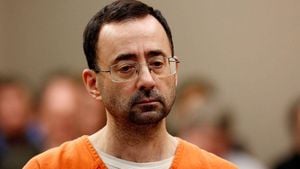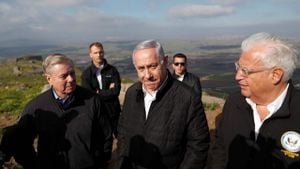The central government is set to introduce the 'One Nation, One Election' (ONOE) Bill today, December 17, 2024, during the winter session of the Lok Sabha. This legislative initiative aims to synchronize elections for the Lok Sabha and state assemblies, allowing for simultaneous polls across the nation.
Union Law Minister Arjun Ram Meghwal will present two key bills during this session: The Constitution (One Hundred and Twenty-Ninth Amendment) Bill, 2024, which is primarily focused on implementing the ONOE concept, and the Union Territories Laws (Amendment) Bill. Ahead of the introduction of the bills, the Bharatiya Janata Party (BJP) has issued a three-line whip, mandatorily requiring all its Members of Parliament (MPs) to be present.
Following the introduction, it is anticipated Meghwal will request Lok Sabha Speaker Om Birla to refer the ONOE Bill to a Joint Committee of Parliament for thorough discussions and consultations. This committee, which will likely be formed based on proportional representation of the various political parties, is expected to be chaired by the BJP, the largest party.
Previously, the Union Cabinet approved the ONOE Bill along with the amendment bill for Union Territories, intending to streamline the electoral process. The Cabinet's decision came after the recommendations from the high-profile committee chaired by former President Ram Nath Kovind were made public. This committee consulted 47 political parties, of which 32 expressed support for simultaneous elections, whereas 15 opposed it.
The proposal to align parliamentary and assembly elections faced backlash from several opposition leaders. Notably, Rahul Gandhi and Mamata Banerjee have been vocal critics, labeling the initiative as “anti-democratic” and arguing it could undermine the democratic framework of India. They contend such structural changes could diminish the political autonomy of individual states and disrupt federalism.
The ONOE Bill outlines provisions to amend existing Articles of the Constitution, including Article 82(A), to facilitate simultaneous elections for the Lok Sabha and all State Legislative Assemblies. A significant feature of this proposal is its provision for the dissolution of state assemblies without compromising the stability of federal structure, which has garnered concerns from various legislators. Once implemented, it will have far-reaching impacts on how elections are conducted across the country.
Citing the historical precedent, supporters of the bill remind constituents of the period from 1951 to 1967 when elections were held simultaneously. They argue revitalizing this practice will save time and resources, providing clearer governance and reducing the strain on security forces who must manage election duties every few months.
The bill outlines two specific phases for implementation. The first phase involves synchronizing elections for the Lok Sabha and state assemblies, and the second phase focuses on aligning local body elections, including panchayat and municipal polls, within 100 days of the general elections. The comprehensive nature of this proposal is intended to culminate by 2034, following the next Lok Sabha elections.
When questioned about the ramifications of the ONOE proposal, Congress MP Manish Tewari raised points of contention against the bill. He argued it clashes with the Constitution's fundamental federal principles. According to him, subordinated state assemblies to the Lok Sabha's tenure erodes local democratic engagement and undermines state rights.
From the government’s perspective, proponents of the ONOE framework assert it would streamline the electoral process and reduce the fiscal burden of conducting multiple elections. BJP Rajya Sabha MP Brij Lal noted the labor and resources consumed during extended election cycles could be more effectively allocated, allowing for faster development and enhanced governance.
The political discourse around the ONOE Bill captures the underlying tensions within India’s multi-faceted democratic framework. Many political actors remain divided, with the BJP’s forward push contrasting sharply with the apprehensions voiced by opposition parties, who characterize it as yet another centralization of power.
Despite these discussions, some regional parties, such as the Telugu Desam Party (TDP), have expressed support for the ONOE initiative, citing their experiences with past simultaneous elections.
To follow the developments today, both supporting and opposing factions are mobilizing their MPs for attendance. It remains to be seen how events will play out after the bill's introduction and the ensuing discussions.
The outcome of today’s proceedings may set the tone for future governance and electoral practices across the nation, reflecting broader themes of democratic engagement, federalism, and political accountability.



